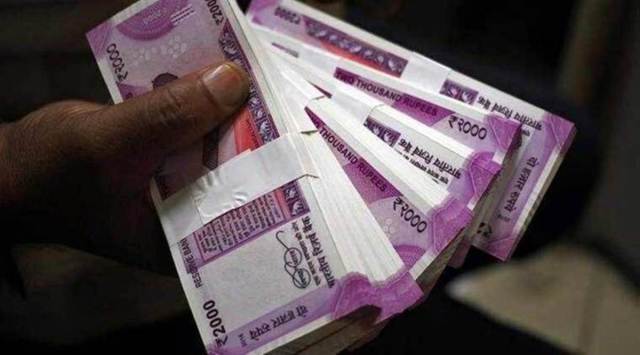Govt set to infuse Rs 14,500 crore capital in 4 state-run banks
Of the total capital infusion, Rs 11,500 crore has gone to these three banks while the remaining Rs 3,000 crore has been infused into Bank of India.
 According to a government notification, Rs 4,800 crore has been provided to Central Bank of India, Rs 4,100 crore to Indian Overseas Bank, Rs 2,600 crore to UCO Bank.
According to a government notification, Rs 4,800 crore has been provided to Central Bank of India, Rs 4,100 crore to Indian Overseas Bank, Rs 2,600 crore to UCO Bank.The government Wednesday said it will infuse Rs 14,500 crore of equity in Central Bank of India, Indian Overseas Bank, Bank of India and UCO Bank by issuing non-interest bearing, non-transferable bonds to these state-owned lenders. Equity injection is expected to help three of these banks come out of the Reserve Bank of India’s (RBI) Prompt Corrective Action (PCA) framework. Indian Overseas Bank, Central Bank of India and UCO Bank are currently under the PCA framework that puts several restrictions on them, including on lending, management compensation and directors’ fees.
Of the total capital infusion, Rs 11,500 crore has gone to these three banks while the remaining Rs 3,000 crore has been infused into Bank of India. According to a government notification, Rs 4,800 crore has been provided to Central Bank of India, Rs 4,100 crore to Indian Overseas Bank, Rs 2,600 crore to UCO Bank
The fund infusion has been done through non-interest bearing bonds issued at par with maturity varying between March 31, 2031 and March 31, 2036. For the current financial year, the government had allocated Rs 20,000 crore for capital infusion into the public sector banks for meeting regulatory requirements.
The government has earlier used similar securities to recapitalise Punjab & Sind Bank by issuing the lender Rs 5,500-crore worth of non-interest bearing bonds valued at par. These are a variation of zero coupon bonds issued by private sector companies. Unlike the previous tranches of recapitalisation bonds which carried interest and were sold to different banks, these “non-interest bearing, non-transferable special GOI securities” are issued to specified banks.
Zero coupon bonds by private companies are normally issued at discount, but since these special bonds are not tradable these can be issued at par. Since these bonds are not tradable, the lenders can keep them in the HTM (held to maturity) bucket, not requiring it to book any mark-to-market gains or losses from these bonds.






- 01
- 02
- 03
- 04
- 05

























